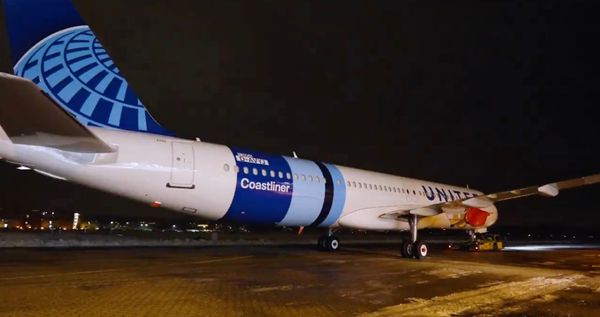Multiple challenges in recent years have forced Boeing to make changes to its senior leadership. As part of this reshuffling, the company announced that a former high-ranking U.S. government official would fill a senior executive position at the company.
Steven Biegun will now be the Senior Vice President of Global Public Policy.

According to Boeing CEO Dave Calhoun, Biegun was hired as part of plans to "deepen [Boeing's] efforts in developing and executing a strategic global public policy plan while helping [them] strengthen important relationships with key stakeholders in the U.S. and around the world".
The company aims to improve its public image as it recovers from the pandemic and several accidents involving the 737 MAX aircraft. Strengthening relationships with customers is a priority for Boeing as it plans on increasing deliveries of the 737 MAX and 787 planes this year. The financial backdrop is expected to provide support for these initiatives, with the company recording its first positive free cash flow since 2018 in the most recent earnings season.
Policy issues are important to Boeing because public policy can affect the company's ability to implement deliveries. For example, the worsening US-China relationship has prevented Boeing from delivering at least 130 737 MAX airplanes to Chinese airlines.

Biegun gained experience in international diplomacy through serving as the special envoy to North Korea, the second-highest ranking official in the State Department, and as a White House foreign policy aide. In the private sector, Biegun was the head of international government relations at Ford Motor Company. Boeing sees Biegun as the right person to help the company navigate geopolitical issues that may arise during flight orders.

The introduction of a new Senior Vice President for Global Public Policy comes at a good time for the company. Boeing recently completed a large deal that saw the Saudi Airlines Riyadh Air and Saudia purchase 78 Boeing 787 Dreamliners.
The return of demand for commercial air travel is also expected to benefit Boeing greatly. The company aims to hire 10,000 new employees and generate between $3 billion and $5 billion in free cash flow this year. If all goes well, 2023 is set to be the "comeback year" for Boeing.
High-Altitude Research Plane Makes Dramatic Belly Landing at Ellington Airport » Airbus Helicopters Reports 20% Order Jump as Global Defence Demand Peaks » Trump to Decertify Bombardier Global Express Over Gulfstream Dispute »
Comments (0)
Add Your Comment
SHARE
TAGS
NEWS Boeing Management Executive Leadership Boeing 787 Boeing 737 MAX Boeing 737 AerospaceRECENTLY PUBLISHED
 FedEx Targets May Return for MD-11 Fleet While UPS Accelerates Total Retirement After Fatal Louisville Crash
A stark divide has emerged between the world’s two largest logistics giants as they navigate the future of the iconic McDonnell Douglas MD-11 freighter. While FedEx Express is doubling down on the trijet with a target return-to-service date of May 31, 2026, United Parcel Service (UPS) has officially closed the book on the aircraft’s thirty-year tenure following a devastating accident that sent shockwaves through the industry.
STORIES
READ MORE »
FedEx Targets May Return for MD-11 Fleet While UPS Accelerates Total Retirement After Fatal Louisville Crash
A stark divide has emerged between the world’s two largest logistics giants as they navigate the future of the iconic McDonnell Douglas MD-11 freighter. While FedEx Express is doubling down on the trijet with a target return-to-service date of May 31, 2026, United Parcel Service (UPS) has officially closed the book on the aircraft’s thirty-year tenure following a devastating accident that sent shockwaves through the industry.
STORIES
READ MORE »
 American Airlines Flight Attendant Files Landmark Lawsuit Alleging Severe Illness From Toxic Cabin Air Exposure
The aviation industry is facing renewed legal scrutiny this week as a veteran American Airlines flight attendant has moved forward with a high-stakes lawsuit, alleging that a "fume event" aboard a commercial flight left her with permanent neurological damage. Filed in the final days of January 2026, the case brings the "dirty little secret" of toxic cabin air back into the national spotlight, highlighting a growing rift between crew safety advocates and major carriers.
STORIES
READ MORE »
American Airlines Flight Attendant Files Landmark Lawsuit Alleging Severe Illness From Toxic Cabin Air Exposure
The aviation industry is facing renewed legal scrutiny this week as a veteran American Airlines flight attendant has moved forward with a high-stakes lawsuit, alleging that a "fume event" aboard a commercial flight left her with permanent neurological damage. Filed in the final days of January 2026, the case brings the "dirty little secret" of toxic cabin air back into the national spotlight, highlighting a growing rift between crew safety advocates and major carriers.
STORIES
READ MORE »
 United Airlines Reimagines Transcontinental Luxury With New A321neo Coastliner Featuring Premium Lie Flat Seating
In a move set to redefine the competitive "pavement wars" between New York and the West Coast, United Airlines has officially teased the arrival of its highly anticipated "Coastliner" service. As of February 2, 2026, the Chicago-based carrier is moving forward with a specialised sub-fleet of Airbus A321neo aircraft designed specifically to capture the high-yield premium transcontinental market.
NEWS
READ MORE »
United Airlines Reimagines Transcontinental Luxury With New A321neo Coastliner Featuring Premium Lie Flat Seating
In a move set to redefine the competitive "pavement wars" between New York and the West Coast, United Airlines has officially teased the arrival of its highly anticipated "Coastliner" service. As of February 2, 2026, the Chicago-based carrier is moving forward with a specialised sub-fleet of Airbus A321neo aircraft designed specifically to capture the high-yield premium transcontinental market.
NEWS
READ MORE »



